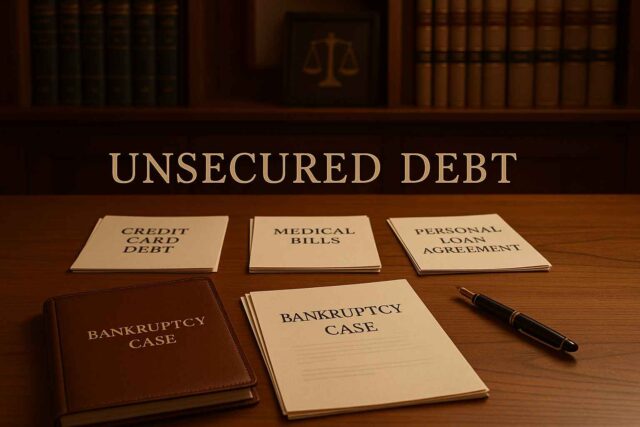

Financial hardship can occur in an instant, only to significantly affect your life for years down the road. For many individuals, significant debt can seem insurmountable and impossible to pay off. Fortunately, you do have options, and our legal team is here to help. If you’re considering filing for Chapter 7 bankruptcy, please don’t hesitate to contact the skilled Columbus bankruptcy lawyers here at Cousino & Weinzimmer LLC for comprehensive representation through each step of the process. We are here to help you get the peace of mind you deserve.
Chapter 7 bankruptcy, often referred to as “liquidation bankruptcy,” is a legal process designed to help individuals eliminate overwhelming debt and achieve a fresh financial start. Unlike Chapter 13 bankruptcy, which requires a structured repayment plan, Chapter 7 allows eligible filers to discharge most unsecured debts without the obligation to repay creditors. This form of bankruptcy is particularly beneficial for individuals facing significant credit card debt, medical bills, or personal loans with no feasible way to pay them back.
While certain assets may be liquidated to satisfy creditors, Ohio offers generous exemptions that help many filers retain essential property. By filing for Chapter 7, you can stop creditor harassment, wage garnishments, and collection lawsuits, providing a clear path toward financial stability.
Not everyone qualifies for Chapter 7 bankruptcy. To be eligible, individuals must pass the means test, which compares their income to the median income of a similar household in Ohio. If your income falls below the state median, you automatically qualify. However, if your income exceeds the median, additional calculations will determine whether you have enough disposable income to repay a portion of your debts through a repayment plan. Other eligibility criteria include:
Our attorneys can help assess your eligibility and explore all available options to determine whether Chapter 7 is the right choice for you.
One of the primary benefits of Chapter 7 bankruptcy is the discharge of unsecured debts, meaning you are no longer legally responsible for repaying them. However, not all debts can be eliminated through this process. Understanding the difference between dischargeable and non-dischargeable debt is crucial before filing.
Dischargeable Debts:
Non-Dischargeable Debts:
Our experienced legal team can analyze your financial situation to determine which debts may be discharged and strategize the best course of action to minimize your financial burdens.
Ohio bankruptcy laws provide exemptions that allow filers to protect essential assets from liquidation. These exemptions ensure that individuals are not left destitute and can maintain a basic standard of living. Common Ohio Chapter 7 exemptions include the following:
By leveraging these exemptions, many individuals filing for Chapter 7 bankruptcy in Ohio are able to retain most, if not all, of their property.
Filing for Chapter 7 bankruptcy involves several key steps, and having an experienced attorney by your side ensures that the process is handled correctly and efficiently. Here is an overview of what to expect:
With proper legal guidance, Chapter 7 bankruptcy can be a straightforward and highly effective solution to overwhelming debt.
Don’t go through the Chapter 7 bankruptcy process alone. The legal team here at Cousino & Weinzimmer LLC has effectively represented countless clients facing financial difficulties here in Ohio for years, and we stand ready to do the same for you. Contact our Columbus Chapter 7 bankruptcy lawyers today so we can get started working on your case and guiding you to your safe harbor.
© 2025 Cousino & Weinzimmer LLC. All rights reserved. Attorney advertising.